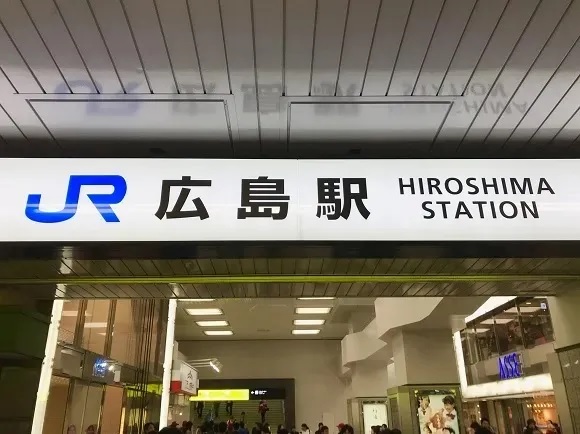
Skipping Hiroshima’s most famous food brought us to a place that both is and isn’t representative of the city.
When the SoraNews24 team is traveling in Japan (and overseas too), we like to ask our taxi drivers for restaurant recommendations, since we figure they know the area pretty well. Usually, we ask for them to recommend somewhere to eat whatever the local specialty is, so ordinarily we’d be asking the Hiroshima cabbies where to eat okonomiyaki, a savory crepe topped with layers of shredded cabbage, bean sprouts, meats, seafood, a grilled egg, and often yakisoba noodles.
▼ Hiroshima-style okonomiyaki is different from Osaka-style okonomiyaki, and committing the faux pas of calling it “Hiroshima-yaki” is an easy way to get on the locals’ bad side.
But as delicious as Hiroshima-style okonomiyaki is, our Japanese-language reporter P.K. Sanjun was in the mood for something different on his recent trip to Hiroshima. P.K. finds himself in Hiroshima about once a year, usually for only a night or two, and this time he decided to skip the okonomiyaki and try something else, to broaden his knowledge of the local restaurant scene. After all, it’s not like the people of Hiroshima eat okonomiyaki for every single meal, right?
So as P.K. slid into the back seat of his taxi, he asked the driver if he could take him to “a good Hiroshima restaurant that serves something other than okonomiyaki.” Sometimes when we do this sort of thing, the suddenness of the request means it takes a while for the driver to decide on a candidate, but P.K.’s cabbie this time, a man in his 60s who’d grown up in Japan’s central Kansai region before moving to Hiroshima, said it was no problem, and promptly drove him to Musubi Musashi.
▼ むさし = Musashi
“Musashi” is a common Japanese name, and “musubi” is a way of saying “rice ball.” If you’re thinking “Wait a second, I thought ‘onigiri’ was how to say ‘rice ball’ in Japanese,” you’re not wrong, as both words are understandable. In practice, though, the word “onigiri” is used more often in east Japan, and “musubi” more often in the west.
From Musubi Musashi’s name, P.K. expected it to be a rice ball specialty shop, but it’s actually got light fare like udon and soba noodles on the menu too. The local chain has nine branches in Hiroshima Prefecture, including two close to Hiroshima Station, but P.K.’s driver had dropped him at the Ebisu branch in downtown Hiroshima, not too far from the Hondori covered shopping arcade and Peace Memorial Park.
P.K.’s driver had recommended two items, one of which was the tenmusu for 460 yen (US$3.10). “Tenmusu” is a shortened version of “tempura ebi musubi,” and they’re rice balls with a tempura shrimp inside.
Tenmusu are most commonly associated with Nagoya, but Musubi Musashi does a great job with them too, and the sesame seeds along one end are a nice, distinctive touch. The real star, though, was the other recommendation from the cabbie, Musubi Musashi’s 750-yen Genki Udon.
This is Musubi Musashi’s take on ankake udon, which has a thick, starchy soup stock. Genki means “energetic,” especially in a happy, active sort of way, and the Genki Udon is loaded with garlic and black pepper. While ankake udon itself isn’t hard to find in Japan, P.K. had never been to a restaurant that seasoned its like Musubi Musashi does. The Genki Ramen definitely lives up to its name, refilling P.K. body and soul with warmth and vitality.
P.K. was thoroughly satisfied with his meal, and judging from the large number of other customers in the restaurant despite it still being the pre-dinner-rush early evening, it’s safe to say Musubi Musashi is a popular place. So he was a little confused the next day when he met up with some local friends and told them about his meal, only for them to be surprised he’d gone to Musubi Musashi. “You came all the way to Hiroshima and ate there?” one said, while another cooly declared it an ordinary restaurant pick, both in the sense of being common but lacking flair. With okonomiyaki off the table, they said they would have expected the taxi driver to take him to a ramen joint or someplace where P.K. could splurge on oysters, another foo d for which Hiroshima is famous. Musubi Musashi, they told him, was more the sort of place that senior citizens liked to eat at, while younger people are more likely to get one of the restaurant’s to-go bento boxed lunches.
However, none of that makes Musubi Musashi’s food any less tasty in P.K.’s eyes/mouth, and while they may not specialize in the famous foods of Hiroshima, they’re still a Hiroshima-only small chain that’s well-known. It’s not flashy, but it’s delicious, and the atmosphere inside the restaurant was laid-back and relaxing, which, could actually be just what you need after a busy day of sightseeing.
So in the end, you could argue either way about whether or not Musubi Musashi is a very Hiroshima-y place to eat, but it’s definitely a good place to eat, P.K. says.
Restaurant information
Musubi Musashi (Ebisu branch) / むすび むさし(胡店)
Address: Hiroshima-ken, Hiroshima-shi, Naka-ku, Horikawacho 5-19
広島県広島市中区堀川町5-19
Website
Photos ©SoraNews24
● Want to hear about SoraNews24’s latest articles as soon as they’re published? Follow us on Facebook and Twitter!
[ Read in Japanese ]
Follow Casey on Twitter, where he’s always happy to talk about okonomiyaki and Japanese linguistics.
[ Read in Japanese ]

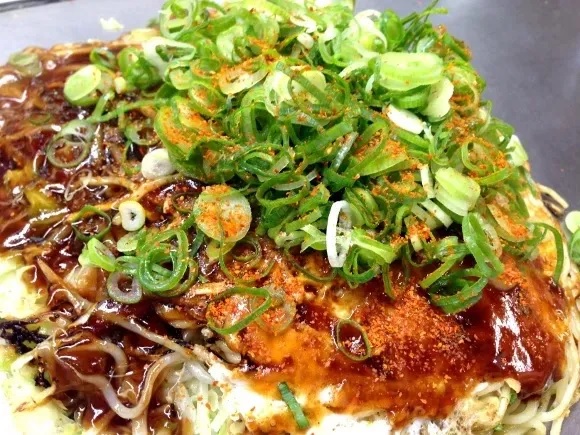
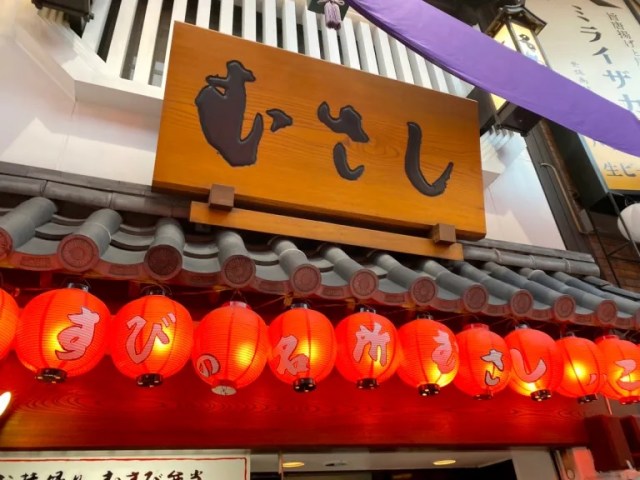
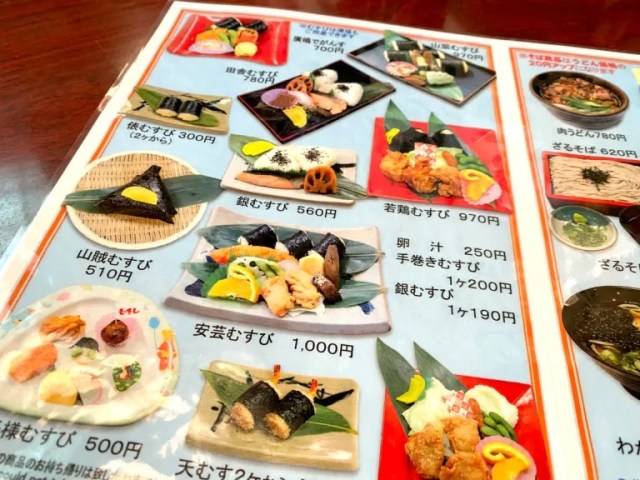
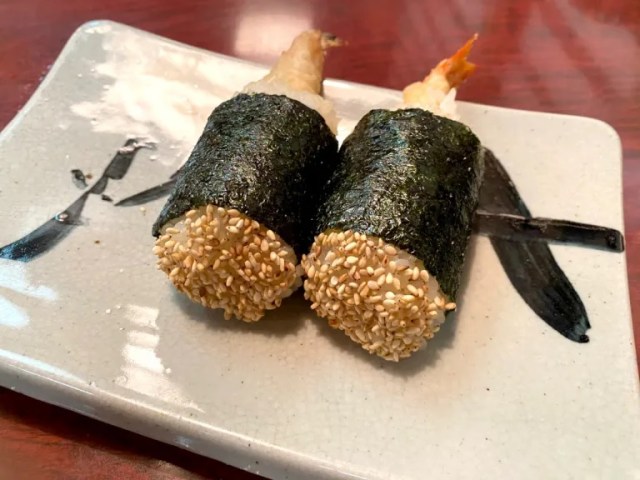
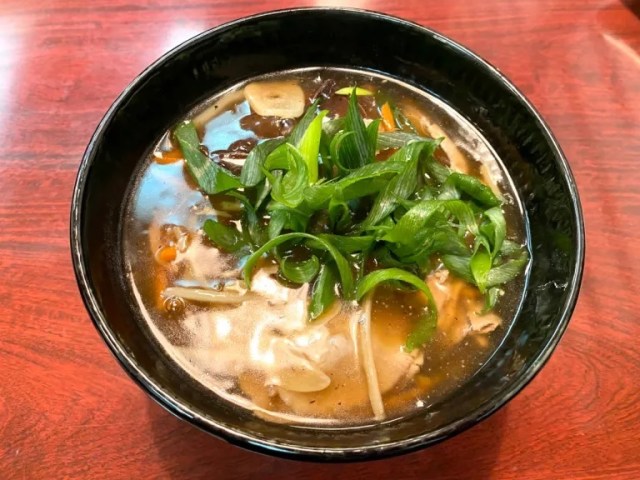
 Hey, Thai tuk-tuk driver! Take us to the best Thai restaurant in this part of Bangkok!
Hey, Thai tuk-tuk driver! Take us to the best Thai restaurant in this part of Bangkok! “Hey Singaporean taxi driver! Take us to the best restaurant in Singapore!”
“Hey Singaporean taxi driver! Take us to the best restaurant in Singapore!” Hey, Croatian taxi driver! Take us to the restaurant with the best štrukli in Zagreb
Hey, Croatian taxi driver! Take us to the restaurant with the best štrukli in Zagreb Japanese politician apologizes to prime minister for calling wife’s cooking “Hiroshima-yaki”
Japanese politician apologizes to prime minister for calling wife’s cooking “Hiroshima-yaki” Hey, Japanese taxi driver! Take us to the best restaurant in Fukuoka’s Hakata neighborhood!
Hey, Japanese taxi driver! Take us to the best restaurant in Fukuoka’s Hakata neighborhood! Seaside scenery, history, and so many desserts on Yokohama’s Akai Kutsu【Japan Loop Buses】
Seaside scenery, history, and so many desserts on Yokohama’s Akai Kutsu【Japan Loop Buses】 Foreigner’s request for help in Tokyo makes us sad for the state of society
Foreigner’s request for help in Tokyo makes us sad for the state of society Japanese city loses residents’ personal data, which was on paper being transported on a windy day
Japanese city loses residents’ personal data, which was on paper being transported on a windy day Red light district sushi restaurant in Tokyo shows us just how wrong we were about it
Red light district sushi restaurant in Tokyo shows us just how wrong we were about it Ghibli Park now selling “Grilled Frogs” from food cart in Valley of Witches
Ghibli Park now selling “Grilled Frogs” from food cart in Valley of Witches Princesses, fruits, and blacksmiths: Study reveals the 30 most unusual family names in Japan
Princesses, fruits, and blacksmiths: Study reveals the 30 most unusual family names in Japan Should you add tartar sauce to Japanese curry rice? CoCo Ichi makes diners an unusual offer
Should you add tartar sauce to Japanese curry rice? CoCo Ichi makes diners an unusual offer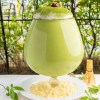 Japan’s massive matcha parfait weighs 6 kilos, contains hidden surprises for anyone who eats it
Japan’s massive matcha parfait weighs 6 kilos, contains hidden surprises for anyone who eats it We try out “Chan Ramen”, an underground type of ramen popular in the ramen community
We try out “Chan Ramen”, an underground type of ramen popular in the ramen community Starbucks Japan releases new mugs and gifts for Mother’s Day
Starbucks Japan releases new mugs and gifts for Mother’s Day McDonald’s new Happy Meals offer up cute and practical Sanrio lifestyle goods
McDonald’s new Happy Meals offer up cute and practical Sanrio lifestyle goods Japanese ramen restaurants under pressure from new yen banknotes
Japanese ramen restaurants under pressure from new yen banknotes French Fries Bread in Tokyo’s Shibuya becomes a hit on social media
French Fries Bread in Tokyo’s Shibuya becomes a hit on social media Studio Ghibli releases new action figures featuring Nausicaä of the Valley of the Wind characters
Studio Ghibli releases new action figures featuring Nausicaä of the Valley of the Wind characters New private rooms on Tokaido Shinkansen change the way we travel from Tokyo to Kyoto
New private rooms on Tokaido Shinkansen change the way we travel from Tokyo to Kyoto Tokyo Tsukiji fish market site to be redeveloped with 50,000-seat stadium, hotel, shopping center
Tokyo Tsukiji fish market site to be redeveloped with 50,000-seat stadium, hotel, shopping center Beautiful Ghibli sealing wax kits let you create accessories and elegant letter decorations【Pics】
Beautiful Ghibli sealing wax kits let you create accessories and elegant letter decorations【Pics】 Studio Ghibli releases Kiki’s Delivery Service chocolate cake pouches in Japan
Studio Ghibli releases Kiki’s Delivery Service chocolate cake pouches in Japan New definition of “Japanese whiskey” goes into effect to prevent fakes from fooling overseas buyers
New definition of “Japanese whiskey” goes into effect to prevent fakes from fooling overseas buyers Our Japanese reporter visits Costco in the U.S., finds super American and very Japanese things
Our Japanese reporter visits Costco in the U.S., finds super American and very Japanese things All-you-can-drink Starbucks and amazing views part of Tokyo’s new 170 meter-high sky lounge
All-you-can-drink Starbucks and amazing views part of Tokyo’s new 170 meter-high sky lounge More foreign tourists than ever before in history visited Japan last month
More foreign tourists than ever before in history visited Japan last month New Pokémon cakes let you eat your way through Pikachu and all the Eevee evolutions
New Pokémon cakes let you eat your way through Pikachu and all the Eevee evolutions Disney princesses get official manga makeovers for Manga Princess Cafe opening in Tokyo
Disney princesses get official manga makeovers for Manga Princess Cafe opening in Tokyo Sales of Japan’s most convenient train ticket/shopping payment cards suspended indefinitely
Sales of Japan’s most convenient train ticket/shopping payment cards suspended indefinitely Sold-out Studio Ghibli desktop humidifiers are back so Totoro can help you through the dry season
Sold-out Studio Ghibli desktop humidifiers are back so Totoro can help you through the dry season Japanese government to make first change to romanization spelling rules since the 1950s
Japanese government to make first change to romanization spelling rules since the 1950s Ghibli founders Toshio Suzuki and Hayao Miyazaki contribute to Japanese whisky Totoro label design
Ghibli founders Toshio Suzuki and Hayao Miyazaki contribute to Japanese whisky Totoro label design Doraemon found buried at sea as scene from 1993 anime becomes real life【Photos】
Doraemon found buried at sea as scene from 1993 anime becomes real life【Photos】 Tokyo’s most famous Starbucks is closed
Tokyo’s most famous Starbucks is closed One Piece characters’ nationalities revealed, but fans have mixed opinions
One Piece characters’ nationalities revealed, but fans have mixed opinions We asked a Uniqlo employee what four things we should buy and their suggestions didn’t disappoint
We asked a Uniqlo employee what four things we should buy and their suggestions didn’t disappoint The best-selling rice ball at Family Mart is…SPAM onigiri?
The best-selling rice ball at Family Mart is…SPAM onigiri? “Hey, Japanese taxi driver, take us to the best takoyaki in Osaka!”
“Hey, Japanese taxi driver, take us to the best takoyaki in Osaka!” Edible culture shock: Our Japanese reporter tries American barbecue for first time【Taste test】
Edible culture shock: Our Japanese reporter tries American barbecue for first time【Taste test】 The twin joys and dual sadnesses of eating ramen in the U.S.
The twin joys and dual sadnesses of eating ramen in the U.S. Hokkaido, Osaka, and Fukuoka: Taste-testing McDonald’s oddly named Adult Regional Teriyaki burgers
Hokkaido, Osaka, and Fukuoka: Taste-testing McDonald’s oddly named Adult Regional Teriyaki burgers Round 2 of the ramen ice cream rumble – This time with real ramen! 【Taste test】
Round 2 of the ramen ice cream rumble – This time with real ramen! 【Taste test】 Shakey’s creates Japanese-style-pizza pizza with new Okonomiyaki Pizza
Shakey’s creates Japanese-style-pizza pizza with new Okonomiyaki Pizza Four things you should eat at Japanese chain Ringer Hut, according to staff who work there
Four things you should eat at Japanese chain Ringer Hut, according to staff who work there Japan’s craziest ramen? Famous noodle chain in Tokyo takes things to extreme levels
Japan’s craziest ramen? Famous noodle chain in Tokyo takes things to extreme levels “Hey, Japanese taxi driver, take us to the best Sapporo ramen place!” – Things don’t go as planned
“Hey, Japanese taxi driver, take us to the best Sapporo ramen place!” – Things don’t go as planned Okonomiyaki you can eat with one hand? We try a revolutionary new frozen food【Taste test】
Okonomiyaki you can eat with one hand? We try a revolutionary new frozen food【Taste test】 Is Japan’s highest-ranking unagi restaurant worth the six-month wait for a table? We find out
Is Japan’s highest-ranking unagi restaurant worth the six-month wait for a table? We find out “Hey, Japanese taxi driver, take us to the best seafood joint in Otaru!”
“Hey, Japanese taxi driver, take us to the best seafood joint in Otaru!” Japan’s first-ever wanko soba conveyor belt restaurant opens in Tokyo
Japan’s first-ever wanko soba conveyor belt restaurant opens in Tokyo Family Mart to celebrate 40th birthday by introducing onigiri with eco-friendly packaging
Family Mart to celebrate 40th birthday by introducing onigiri with eco-friendly packaging We try five menu recommendations from a clerk at CoCo Ichibanya and almost fall in love
We try five menu recommendations from a clerk at CoCo Ichibanya and almost fall in love
Leave a Reply